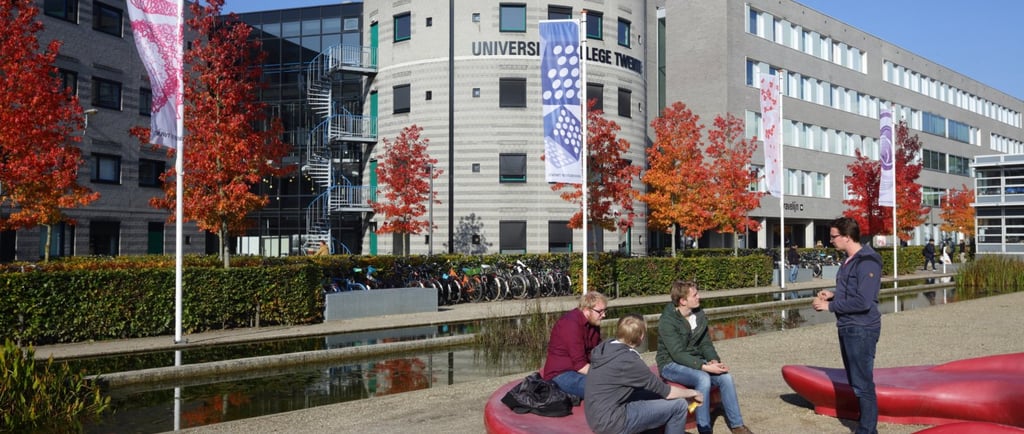Kaydence partners with the CSH to drive innovative solutions in education and healthcare.
Fully Funded PhD Opportunity for International Students: Developing Geo-Artificial Intelligence for Mapping Vegetation Dynamics at the University of Twente
The Fully Funded PhD Opportunity in Geo-Artificial Intelligence for Mapping Vegetation Dynamics at the University of Twente offers aspiring researchers a chance to work on cutting-edge environmental research. This PhD position focuses on developing advanced Geo-AI techniques to monitor and analyze vegetation changes using remote sensing, machine learning, and geospatial analysis. Successful candidates will receive full funding, a competitive salary, and access to world-class research facilities in the Netherlands. The program welcomes international students with a background in geospatial science, AI, environmental studies, or related fields. By joining this interdisciplinary project, researchers will contribute to innovative solutions for tracking vegetation dynamics, aiding policymakers, conservationists, and climate researchers.
FELLOWSHIP
2/17/20252 min read


The University of Twente is offering an exciting PhD opportunity for international students to contribute to a pioneering research project on Geo-Artificial Intelligence (Geo-AI) for Mapping Vegetation Dynamics. This fully funded position is designed for motivated individuals with expertise in geospatial science, artificial intelligence, or environmental studies who are passionate about addressing global environmental challenges.
Project Overview
Vegetation plays a crucial role in climate regulation, biodiversity, and ecosystem stability. However, rapid environmental changes such as deforestation, climate change, and land-use modifications threaten global vegetation patterns. This PhD research focuses on developing advanced Geo-AI methods to accurately map and analyze vegetation changes using remote sensing data, machine learning algorithms, and geospatial analysis. The goal is to provide data-driven insights for policymakers, conservationists, and researchers.
Eligibility Criteria
Essential Qualifications:
MSc degree in geospatial science, environmental science, computer science, or a related field.
Strong interest in data-driven analysis and environmental sustainability.
Proficiency in Python programming.
Knowledge of machine learning model design and implementation.
Experience in geospatial modeling, spatial statistics, and deep learning.
Ability to work effectively in an interdisciplinary and international research setting.
Excellent communication skills and fluency in English.
Preferred Qualifications (Not Mandatory):
Fluency in Dutch or willingness to learn.
Knowledge of climate change, ecology, or phenology.
Candidates who meet the essential qualifications and demonstrate strong motivation are encouraged to apply, even if they lack some preferred skills. Training and skill development opportunities will be available throughout the program.
Program Details
Duration: Four-year full-time PhD program.
Location: University of Twente, Enschede, Netherlands.
Key Responsibilities:
Develop and apply AI and machine learning models for vegetation mapping.
Analyze large-scale remote sensing datasets, including satellite imagery and environmental variables.
Collaborate with an interdisciplinary research team.
Publish research findings in high-impact scientific journals and present at international conferences.
Funding & Benefits:
Fully funded PhD position with a competitive salary.
Monthly stipend starting at €2,901 in the first year, increasing to €3,707 in the fourth year.
Additional benefits include an 8% holiday allowance and an 8.3% year-end bonus.
41 annual holiday days (for full-time employment).
Access to professional and personal development programs via Twente Graduate School.
A stimulating academic environment with state-of-the-art research facilities.
A strong pension scheme.
Opportunity to work on real-world environmental sustainability challenges.
Application Process
Required Documents:
Motivation Letter (Max. 1 Page) – Explain why you are interested in this research and what unique skills you bring.
Curriculum Vitae (CV) – Include details of coursework, academic achievements, research experience, and contact information for two references.
Research Proposal (Max. 2 Pages) – Outline your ideas for phenological modeling within the framework of the EARTHONE project.
Summary of Recent Work (Approx. 250 Words) – Provide a brief overview of your most significant academic project (e.g., MSc thesis or final project report).
Interview & Selection Process:
First-round interviews: Scheduled for March 19, 2025.
Second-round interviews (if necessary): Conducted approximately one week later.
Application Deadline
March 6, 2025
Applications must be submitted via the University of Twente’s online portal.
Why Apply?
This PhD opportunity at the University of Twente offers a chance to engage in cutting-edge research at the intersection of geospatial science and artificial intelligence. As a PhD candidate, you will have the opportunity to contribute to innovative solutions for environmental sustainability, collaborate with top-tier researchers, and access world-class academic resources.
If you are passionate about Geo-AI, environmental conservation, and machine learning, don’t miss this opportunity to advance your career and make a global impact.
Start your application today and take the first step toward becoming a leader in Geo-AI research!
Kaydence Consultancy
Global platform for study abroad solutions, marketing strategy and your efficient research partner
Contact
Get in touch
director@kaydenceconsultancy.com
+9188916082
© 2025 Kaydence Consultancy. All rights reserved.
Designed with care | Powered by Innovation
Navigation
Company
Career
Legal
M G Road, Kochi, Kerala, India
